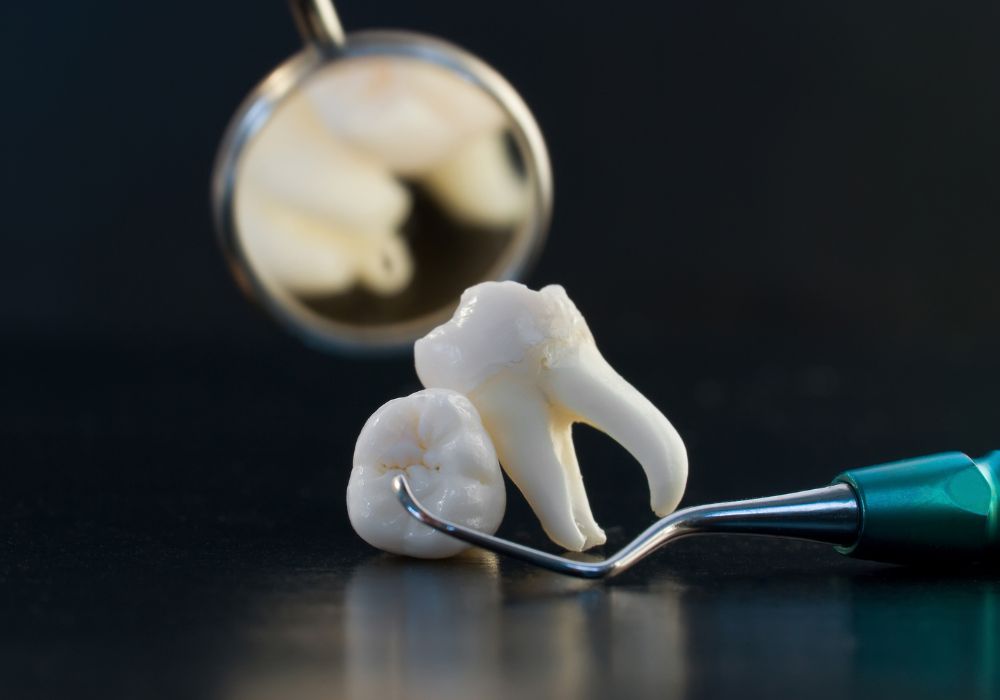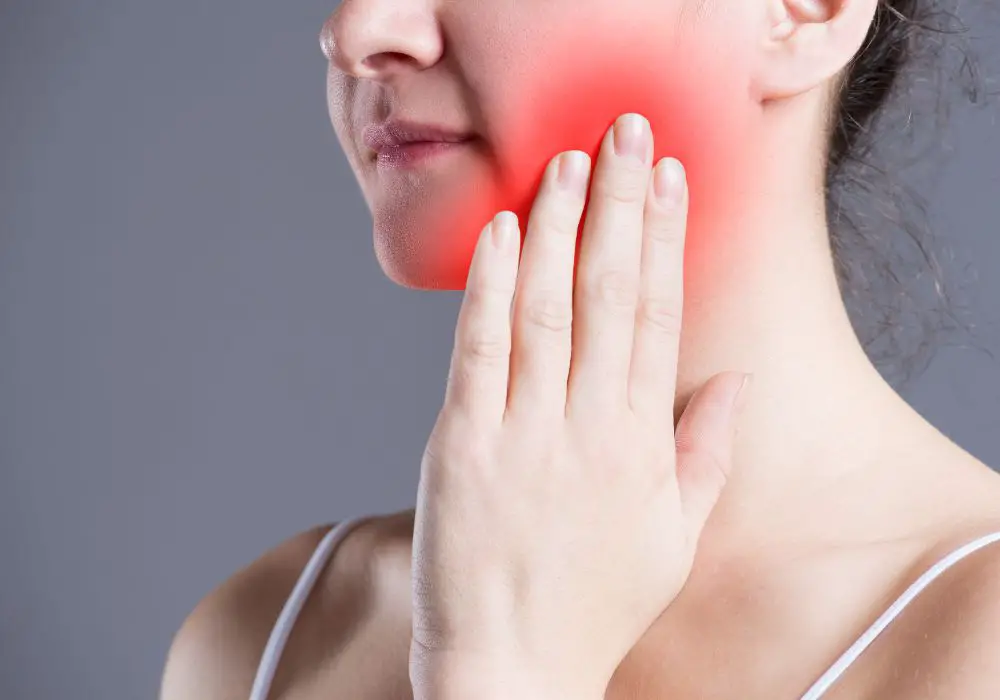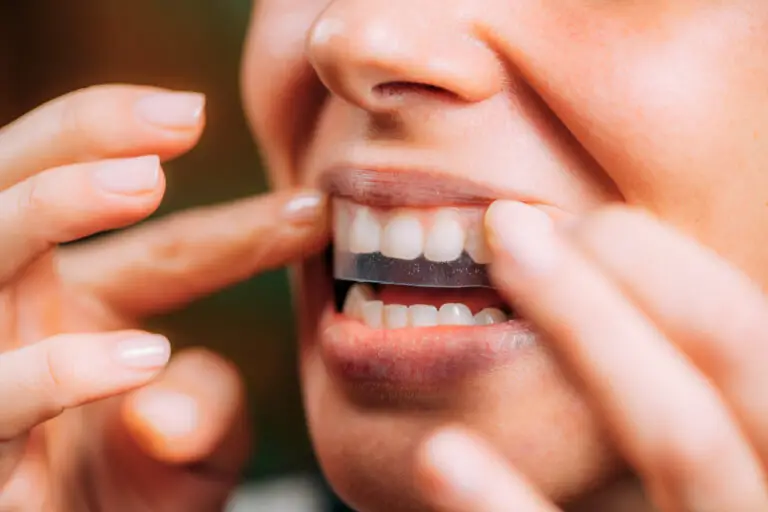Have you noticed a foul smell coming from your mouth lately? Are you experiencing discomfort at the back of your mouth? It could be a sign that your wisdom teeth are growing in.
Wisdom teeth, also known as third molars, typically begin to emerge in your late teens or early twenties. While not everyone will experience problems with their wisdom teeth, some people may develop symptoms such as bad breath, swelling, and pain. These symptoms can be caused by a variety of factors, including impaction, infection, or decay.
If you suspect that your wisdom teeth may be causing your bad breath, it’s important to see your dentist for an evaluation. Your dentist can examine your teeth and gums to determine if your wisdom teeth are growing in properly and recommend the best course of treatment if necessary. In the meantime, maintaining good oral hygiene habits such as brushing and flossing regularly can help keep your breath fresh and your teeth healthy.
Understanding Wisdom Teeth Growth

Wisdom teeth, also known as third molars, are the last set of teeth to emerge in your mouth. They usually grow in between the ages of 17 and 25, and some people may never even develop them.
The growth of wisdom teeth can cause discomfort and pain, and may even lead to bad breath. As the teeth push through the gums, they can create pockets where bacteria can accumulate, causing an unpleasant odor.
In some cases, wisdom teeth may grow in normally and not cause any issues. However, more often than not, they can become impacted, meaning they don’t have enough room to grow properly. This can cause pain, swelling, and even infection.
It’s important to visit your dentist regularly to monitor the growth of your wisdom teeth and ensure they are not causing any problems. Your dentist may recommend removal of the teeth if they are causing pain or posing a risk to your oral health.
In the next section, we’ll take a look at some common signs that your wisdom teeth may be growing in.
Correlation Between Wisdom Teeth and Bad Breath
If you are experiencing bad breath, your wisdom teeth could be the culprit. When your wisdom teeth begin to grow, they can cause a variety of problems, including bad breath. Here are some reasons why:
- Food particles: As your wisdom teeth grow, they create pockets in your mouth where food particles can get trapped. These particles can then begin to decay, causing bad breath.
- Infection: If your wisdom teeth are impacted or partially erupted, they can become infected. An infection can cause bad breath as well as other symptoms such as pain and swelling.
- Poor oral hygiene: When your wisdom teeth begin to grow, it can be difficult to clean them properly. If you do not maintain good oral hygiene, bacteria can build up in your mouth and cause bad breath.
- Dry mouth: When your wisdom teeth are growing, they can cause your mouth to become dry. This lack of saliva can lead to the growth of bacteria, which can cause bad breath.
If you are experiencing bad breath and you have wisdom teeth that are growing, it is important to maintain good oral hygiene. Brush and floss regularly, and use a mouthwash to help kill bacteria. If your bad breath persists, you should see a dentist to determine if your wisdom teeth are causing the problem.
Causes of Bad Breath During Wisdom Teeth Growth

If you are experiencing bad breath while your wisdom teeth are growing, there are a few possible causes. Here are some of the most common causes of bad breath during wisdom teeth growth:
Infection
When your wisdom teeth are growing, they can cause an infection in your gums, which can lead to bad breath. This infection is called pericoronitis, and it occurs when the gum tissue around your wisdom teeth becomes inflamed. If you have pericoronitis, you may also experience pain, swelling, and difficulty opening your mouth.
Food Debris
When your wisdom teeth are growing, they can create a space between your teeth and gums where food debris can become trapped. This can lead to bad breath, as the food debris can begin to rot and produce an unpleasant odor. To prevent this, make sure to brush and floss regularly, especially in the areas around your wisdom teeth.
Poor Oral Hygiene
If you are not keeping your mouth clean while your wisdom teeth are growing, you may experience bad breath. When you do not brush and floss regularly, bacteria can build up in your mouth, leading to bad breath. To prevent this, make sure to brush your teeth twice a day, floss daily, and use mouthwash to kill bacteria.
In summary, bad breath during wisdom teeth growth can be caused by infection, food debris, and poor oral hygiene. By taking good care of your mouth and visiting your dentist regularly, you can prevent bad breath and keep your mouth healthy.
Symptoms of Bad Breath From Wisdom Teeth
When your wisdom teeth are growing, you may experience various symptoms, including bad breath. Here are some common symptoms of bad breath caused by wisdom teeth:
- Red or swollen gums
- Tender or bleeding gums
- Jaw pain
- Swelling around the jaw
- An unpleasant taste in your mouth
- Difficulty opening your mouth
These symptoms can be caused by impacted wisdom teeth, which means that the teeth are not able to fully emerge from the gums. When this happens, bacteria can grow in the pockets around the teeth, leading to bad breath.
If you experience any of these symptoms, it is important to see your dentist. They can examine your teeth and gums to determine if your bad breath is caused by your wisdom teeth. In some cases, your dentist may recommend removing your wisdom teeth to alleviate your symptoms.
In addition to seeing your dentist, there are some things you can do to manage your bad breath while your wisdom teeth are growing. These include:
- Brushing your teeth twice a day with a fluoride toothpaste
- Flossing daily to remove food particles and bacteria from between your teeth
- Using an antibacterial mouthwash to kill bacteria in your mouth
- Drinking plenty of water to keep your mouth hydrated and flush out bacteria
By taking these steps and seeing your dentist regularly, you can manage your bad breath and keep your mouth healthy while your wisdom teeth are growing.
Preventing Bad Breath During Wisdom Teeth Growth

If you’re experiencing bad breath during the growth of your wisdom teeth, there are a few things you can do to help prevent it. Here are some tips:
Regular Brushing
Brushing your teeth regularly is one of the best ways to prevent bad breath. Make sure to brush your teeth at least twice a day, especially after meals. Use a soft-bristled toothbrush and fluoride toothpaste to clean your teeth thoroughly. Don’t forget to brush your tongue as well, as bacteria can accumulate there and cause bad breath.
Flossing
Flossing is also important for preventing bad breath. It helps remove food particles and plaque from between your teeth and along your gumline. Floss at least once a day, preferably before bed. Use a gentle back-and-forth motion to clean between your teeth, and be sure to get all the way down to your gumline.
Mouthwash
Using mouthwash can help kill bacteria and freshen your breath. Look for a mouthwash that contains fluoride and has been approved by the American Dental Association (ADA). Rinse your mouth with mouthwash after brushing and flossing, or anytime you need a quick refresher.
By following these tips, you can help prevent bad breath during the growth of your wisdom teeth. Remember to also visit your dentist regularly for check-ups and cleanings, and to address any dental issues that may arise.
When to See a Dentist
If you are experiencing symptoms in the area behind your last molar that may be associated with an impacted wisdom tooth, it is essential to see your dentist. Here are some signs that indicate you need to schedule an appointment with your dentist:
- Pain in the jaw
- Swelling around the jaw
- Bad breath
- An unpleasant taste in your mouth
- Difficulty opening your mouth
If you have any of these symptoms, it is essential to seek medical attention immediately. Your dentist can examine your teeth and determine if your wisdom teeth are causing the problem. In some cases, your dentist may recommend removing your wisdom teeth to alleviate your symptoms.
If you have pericoronitis, which is inflammation of the gum tissue around your wisdom teeth, you may experience mild to severe symptoms, including bad breath, pus, and facial swelling. In this case, you should see your dentist immediately to prevent further complications.
It is also normal to experience bleeding after wisdom tooth removal for about 24 hours after your procedure. However, if you notice excessive bleeding or a dry opening instead of a healthy blood clot, it is essential to see your dentist immediately.
In summary, if you are experiencing any symptoms related to your wisdom teeth, it is crucial to see your dentist. Your dentist can diagnose the problem and recommend the best course of treatment to alleviate your symptoms and prevent further complications.
Frequently Asked Questions
How long does bad breath last after wisdom teeth removal?
It is normal to experience bad breath after wisdom teeth removal. This is because the extraction process creates a small hole in your gum tissue, which can allow bacteria to grow and cause bad breath. The duration of bad breath can vary, but it usually lasts for a few days to a week. To help reduce bad breath, make sure to follow your dentist’s aftercare instructions and maintain good oral hygiene.
Can wisdom teeth cause bad taste in mouth?
Yes, wisdom teeth can cause a bad taste in your mouth. This is because the teeth can push against the gums, causing them to become inflamed and infected. This can lead to a buildup of bacteria, which can cause a bad taste in your mouth. If you experience a bad taste in your mouth, it is important to see your dentist to determine the cause and receive appropriate treatment.
Can wisdom teeth cause breathing problems?
In rare cases, wisdom teeth can cause breathing problems. This can occur if the teeth push against the airway, causing it to narrow and restrict airflow. If you experience difficulty breathing or shortness of breath, it is important to seek medical attention immediately.
What are the symptoms of wisdom tooth infection?
The symptoms of a wisdom tooth infection can include pain, swelling, redness, and tenderness in the affected area. You may also experience a bad taste in your mouth or difficulty opening your mouth. If you experience any of these symptoms, it is important to see your dentist as soon as possible to receive appropriate treatment.
Why do wisdom teeth smell bad when growing?
Wisdom teeth can smell bad when growing because they can push against the gums, causing them to become inflamed and infected. This can lead to a buildup of bacteria, which can cause a bad odor. To help reduce the odor, make sure to maintain good oral hygiene and see your dentist regularly.
Does wisdom teeth breath taste bad?
Yes, wisdom teeth can cause bad breath. This is because the teeth can push against the gums, causing them to become inflamed and infected. This can lead to a buildup of bacteria, which can cause bad breath. To help reduce bad breath, make sure to maintain good oral hygiene and see your dentist regularly.







